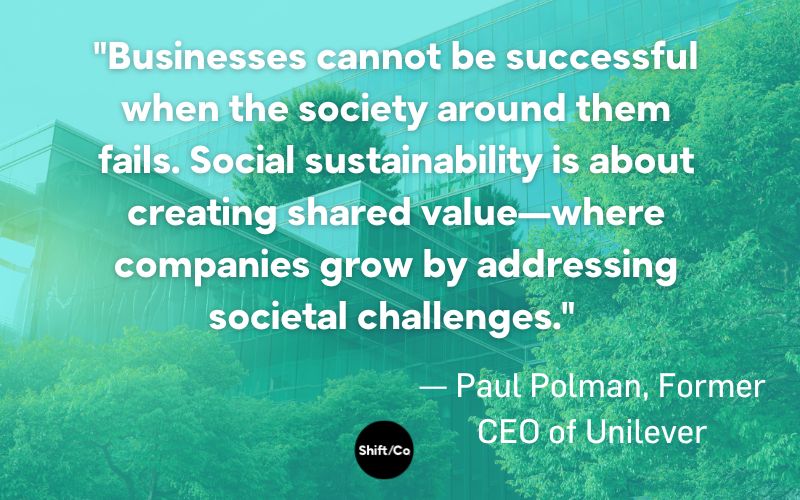Growing a business today requires more than just a solid financial plan. As consumers become more environmentally and socially conscious, business growth is increasingly tied to adopting sustainable business practices. Conscious entrepreneurs are leading the charge in building businesses that not only drive profits but also contribute positively to society and the environment. We’ll explore how sustainable business practices can fuel business growth and provide actionable steps for conscious entrepreneurs who want to build a conscious business.
What is a Conscious Business?
Defining Conscious Business
A conscious business is one that prioritizes more than just profits. It focuses on ethical decision-making, transparency, social responsibility, and environmental sustainability. Conscious businesses aim to create a positive impact on the world while maintaining profitable operations. They look at the bigger picture—understanding that true business success is measured not just by financial growth but by the value they bring to people and the planet.
The Role of Conscious Entrepreneurs in Sustainable Business Growth
Conscious entrepreneurs are at the forefront of this movement. They recognize that business growth does not have to come at the expense of the environment or society. These entrepreneurs embed sustainable business practices into their operations, ensuring that their companies grow responsibly. By focusing on long-term gains rather than short-term profits, conscious entrepreneurs build businesses that are capable of thriving in the evolving market.
An example of a service-based company focused on social sustainability is Accenture, a global consulting and professional services firm, has made social sustainability a core part of its mission. The company focuses on fostering workplace diversity and inclusion, ensuring fair labor practices, and promoting social responsibility through its services. Accenture runs programs that help underrepresented groups, such as women and marginalized communities, access education, career development, and leadership opportunities in the tech industry.
Additionally, Accenture partners with nonprofits and governments to leverage technology and innovation to address social issues, such as poverty and digital literacy. By incorporating social sustainability into its consulting and operational practices, Accenture demonstrates how service-based businesses can drive positive social change while helping clients succeed.
Why Sustainable Business Practices Fuel Growth
Benefits of Sustainable Business Practices
Sustainable business practices are not just good for the planet—they’re also good for business. By adopting sustainable methods, businesses can reduce costs, build customer loyalty, and enhance their brand reputation. Here are some key benefits:
– Customer Loyalty: Modern consumers, particularly millennials and Gen Z, prioritize sustainability when making purchasing decisions. A business that demonstrates a commitment to sustainability is more likely to attract and retain these customers.
– Employee Retention: Employees are increasingly looking for purpose in their work. Companies that prioritize sustainable business practices often have higher employee satisfaction and retention rates.
– Cost Savings: Reducing energy consumption, minimizing waste, and optimizing supply chains can significantly lower operational costs.
The Competitive Advantage of Sustainability
Sustainability can serve as a powerful differentiator in today’s market. Businesses that prioritize sustainability often enjoy a competitive advantage because they align with consumer values. Incorporating sustainability into your marketing strategy can help you stand out from competitors who may focus solely on profits.
Tip: Highlight your social sustainability efforts in your branding and communication. For example, if your company supports fair labor practices, promotes mental health initiatives, or donates a portion of profits to social causes, make sure to share these commitments with your customers. This not only strengthens your brand but also resonates with socially conscious consumers who prioritize ethical businesses.
Key Sustainable Business Practices for Conscious Entrepreneurs
Environmental Sustainability
Reducing Your Business’s Carbon Footprint
One of the most impactful ways to grow a sustainable business is by reducing your carbon footprint. This can be done by adopting energy-efficient technologies, switching to renewable energy sources, and minimizing waste.
Even service-based businesses have a carbon footprint, particularly through office energy use, and digital infrastructure. Conscious entrepreneurs running service-based businesses can take several steps to minimize their environmental impact.
Action Steps:
Go Paperless:
Transition to digital documentation and avoid printing unless absolutely necessary. Use e-signature tools to eliminate the need for physical contracts and paperwork.
Use Energy-Efficient Equipment:
Ensure that computers, lighting, and other office equipment are energy-efficient. Switch to LED bulbs, and consider energy-saving settings for computers and other devices.
Work Remotely or Implement Hybrid Work Models:
Reduce the need for commuting by offering virtual services or meetings. Encourage employees or clients to use virtual platforms like Zoom or Skype, minimizing the environmental impact of travel.
Offset Carbon Emissions from Necessary Travel:
For those who need to travel (e.g., attending conferences or meeting clients), you can purchase carbon offsets to neutralize the emissions from flights or car travel. Many services allow you to calculate your carbon footprint and offset it accordingly.
Implementing Eco-Friendly Practices in Digital Services
Digital services, such as websites and online coaching platforms, also consume energy. Conscious entrepreneurs in service-based industries can make improvements to reduce the environmental impact of their digital operations.
Action Steps:
Optimize Your Website for Energy Efficiency:
The internet consumes a lot of energy, so ensure that your website is optimized for energy efficiency. This includes compressing images, using faster-loading designs, and hosting your website on green web hosting services that use renewable energy or offset their carbon footprint.
Reduce Email Footprint:
Encourage clients to opt for fewer emails by consolidating communications. You can also use email platforms that prioritize sustainability or offset their energy use, such as Tutanota.
Use Cloud Services with a Green Focus:
Switch to cloud services like Google Cloud or Microsoft Azure, which have committed to becoming carbon-neutral or carbon-negative. These services often use renewable energy in their data centers and offer better energy efficiency than traditional data centers.
Reducing Waste in Office and Daily Operations
Even though service-based businesses may not produce physical goods, they still generate waste in their day-to-day operations. Reducing waste is a key sustainable business practice for conscious entrepreneurs.
Action Steps:
Eliminate Single-Use Plastics:
If you operate in a shared office or co-working space, encourage the use of reusable cups, utensils, and water bottles. Avoid single-use plastics for office supplies or client meetings.
Recycle and Compost:
Implement a recycling program in your workspace, even if it’s a home office. Ensure that you dispose of electronic waste (e-waste) properly and compost organic waste when possible.
Source Sustainable Office Supplies:
Choose eco-friendly office supplies, such as recycled paper, refillable pens, and non-toxic cleaning products. Opt for suppliers who prioritize sustainability in their products.

Social Responsibility
Promoting Fair Labor Practices and Ethical Sourcing
Conscious entrepreneurs prioritize fair labor practices and ethical sourcing. This means ensuring that workers are paid fairly and treated with respect, and that materials are sourced in a way that does not harm the environment or exploit communities.
Action Steps:
– Audit your supply chain to ensure compliance with fair labor practices.
– Source materials from certified ethical suppliers.
– Advocate for fair labor practices within your industry.
Supporting Local Communities
Businesses that give back to their communities are often seen as more trustworthy and responsible. By supporting local communities, you can build a positive reputation and contribute to social sustainability.
Action Steps:
– Partner with local charities or community organizations.
– Encourage employee volunteer programs.
– Sponsor local events or initiatives that align with your business values.
Supporting Sustainable Vendors
Even though service-based businesses may not have a traditional supply chain, they still rely on various vendors for services ranging from web development to marketing. Conscious entrepreneurs can ensure that these vendors share their commitment to sustainability.
Action Steps:
Choose Eco-Friendly Service Providers:
Work with green web hosts, eco-friendly marketing agencies, or ethical business consultants who prioritize sustainable practices in their own operations.
Overcoming Challenges in Growing a Sustainable Business
Common Challenges in Sustainable Business Growth
While growing a sustainable business is rewarding, it can come with challenges. These may include higher upfront costs, difficulty finding sustainable suppliers, and resistance to change.
Action Steps:
– Start small by implementing cost-effective sustainability initiatives.
– Research available grants, incentives, and tax breaks for sustainable businesses.
– Educate your team and stakeholders on the long-term benefits of sustainability.
Measuring the Impact of Your Sustainable Business Practices
Tracking the success of your sustainability initiatives is crucial for continued growth. This helps you understand what’s working and where you need to improve.
Action Steps:
– Use carbon footprint calculators, waste audits, and energy tracking tools to measure impact.
– Gather customer feedback to assess how your sustainability efforts are perceived.
– Regularly report on your sustainability progress to stakeholders.
The Future of Sustainable Business Growth
Trends in Sustainable Business Practices
The future of business growth will be defined by sustainability. Emerging trends include the circular economy, zero-waste initiatives, and regenerative business models.
Action Steps:
– Explore how you can integrate these trends into your business model.
– Stay informed about new technologies and practices that can improve your sustainability efforts.
– Continuously innovate to stay ahead of industry changes.
The Role of Technology in Sustainable Business Growth
Technology can play a crucial role in helping businesses adopt sustainable practices. From AI to blockchain, new tech solutions can optimize resource use and enhance supply chain transparency.
Action Steps:
– Explore AI-driven tools that can help reduce energy consumption or optimize delivery routes.
– Use blockchain to track the sustainability of your supply chain.
– Leverage data analytics to make informed decisions about sustainability initiatives.
Conclusion: Building a Sustainable and Conscious Business for the Future
Sustainable business practices are no longer optional—they’re essential for long-term business growth. Conscious entrepreneurs who prioritize sustainability can not only help protect the planet but also build profitable, resilient impactful businesses. As consumer demand for ethical business practices continues to rise, now is the time to embrace sustainability and lead the way toward a more conscious future.
Shift/Co is a place where conscious leaders gather to grow.
Shift/Co is a global community dedicated to conscious business growth. We empower entrepreneurs to grow their businesses through innovative tools, expert coaching, and a supportive network. Our comprehensive approach includes personalized training, leadership development, and a collaborative environment, ensuring that members can achieve significant business growth while positively impacting the world. Join Shift/Co to elevate your business and be part of a movement that believes in doing good business better. For more information, visit Shift/Co.

